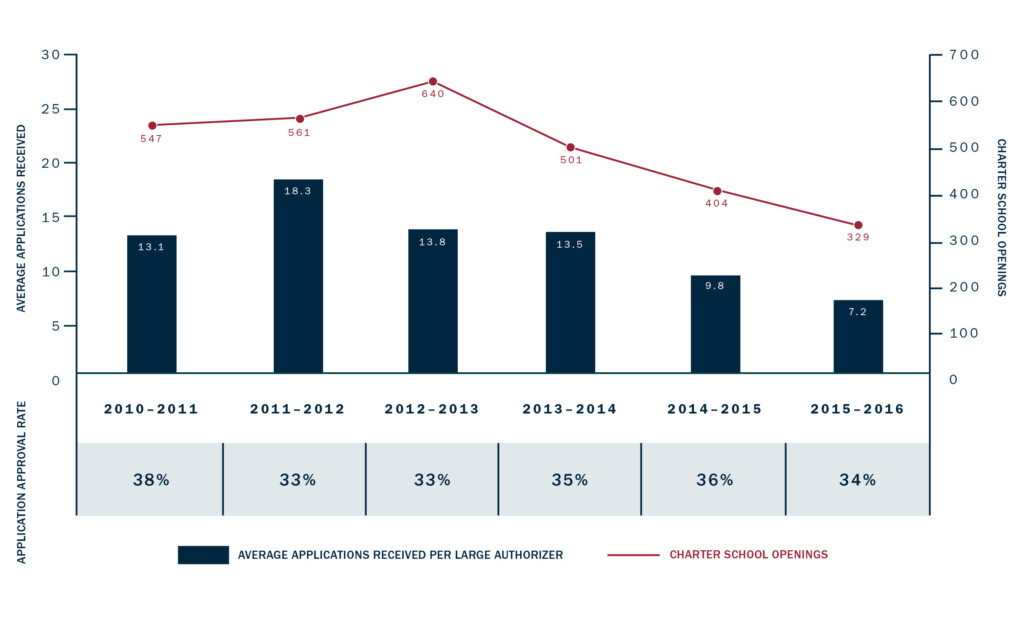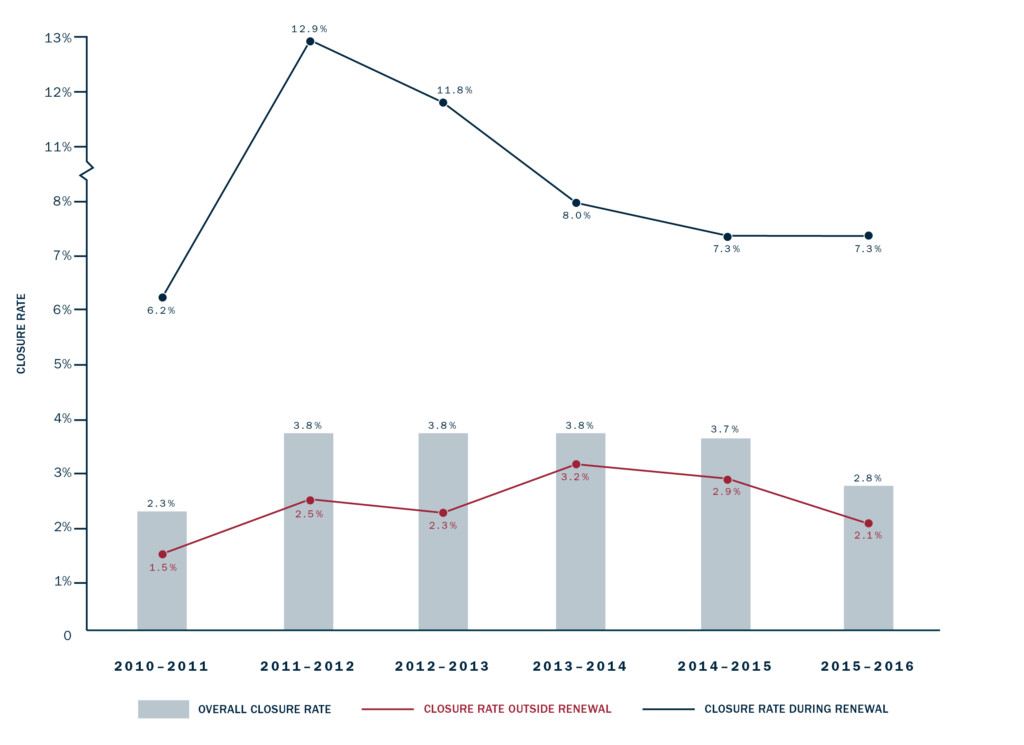Last month, fresh charter school numbers had several observers asking: Why are fewer charters opening?
A new report from the National Association of Charter School Authorizers offers some clues. In short, it finds fewer groups are applying to open new schools.
Over the past five years, the approval rate for charter school applications nationwide has hovered right around 35 percent. But the total number of applications has declined.

Why are fewer groups applying to open new charter schools? The authorizers group says that’s a question for future research.
“As the sector continues to think through why growth is slowing, our findings suggest figuring out what’s driving the decline in charter applications will be a central part of the answer,” M. Karega Rausch, NACSA’s vice president of research and evaluation, said in a press release. “That’s why we think it’s important to dig deeper into the data and find out why fewer applications are being proposed and what’s helping—or hindering—strong applications.”
Florida seems to match the national trend. Developments in this state point to several possible explanations.
- Lack of facilities. Charter schools get less money for buildings than traditional schools. In Florida, they typically don’t qualify for facilities funding until their third year. Across the country, facilities are a big source of the funding gap between charter and traditional public schools. If an organization can’t find a building — or worries about its ability to do so — it might not apply to open a school.
- Teacher shortages. Charter school operators looking to come to Florida say the supply of qualified teachers is an important factor they consider when they look at where to expand next.
- Political barriers. In some states, caps limit the growth of charter schools, and organizations that might like to start new schools simply don’t have the chance. Some Florida school districts have erected new political barriers. It’s at least possible some charter operators look at political battles in places like Palm Beach County and decide not to apply.
- Saturation. In some cities across the country, too many charter schools compete to attract a scarce number of students. Detroit comes to mind, but it’s an outlier in many respects. It’s hard to imagine similar dynamics deterring charter schools in fast-growing Florida, where some school districts want new charters to help absorb a steady influx of students.
Perhaps there are other factors at work. But the trends point to growing pains for an increasingly mature charter school movement.
In another sign of maturity, the NACSA report shows charter school closures have declined. And they’re especially less likely to happen before a charter school contract comes up for renewal. That means fewer charters are closing suddenly, in the middle of the school year or over the summer. When they close, it’s more likely to happen at the end of a charter term, which typically lasts five years under Florida law.

The big, unanswered question is how these trends square with parent demand. Are fewer charter schools opening despite the fact that thousands of parents still want what they have to offer? If so, it’s worth taking a hard look at what other barriers they face.


